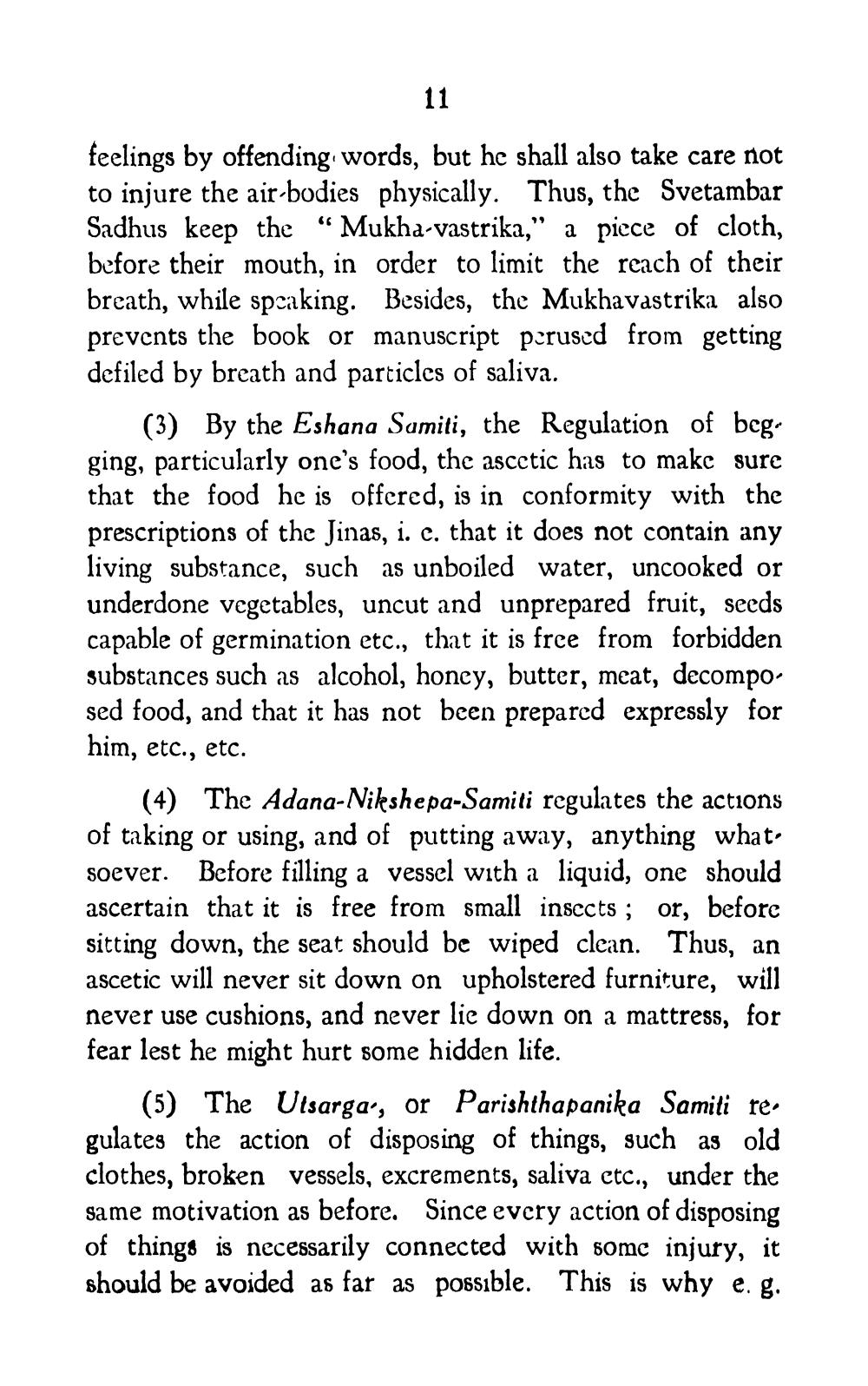________________
feelings by offending words, but he shall also take care not to injure the air bodies physically. Thus, the Svetambar Sadhus keep the “Mukha-vastrika," a piece of cloth, before their mouth, in order to limit the reach of their breath, while speaking. Besides, the Mukhavastrika also prevents the book or manuscript perused from getting defiled by breath and particles of saliva.
(3) By the Eshana Samiti, the Regulation of beg. ging, particularly one's food, the ascetic has to make sure that the food he is offered, is in conformity with the prescriptions of the Jinas, i. e. that it does not contain any living substance, such as unboiled water, uncooked or underdone vegetables, uncut and unprepared fruit, seeds capable of germination etc., that it is free from forbidden substances such as alcohol, honey, butter, meat, decomposed food, and that it has not been prepared expressly for him, etc., etc.
(4) The Adana-Nikshepa-Samiti regulates the actions of taking or using, and of putting away, anything what. soever. Before filling a vessel with a liquid, one should ascertain that it is free from small insects; or, before sitting down, the seat should be wiped clean. Thus, an ascetic will never sit down on upholstered furniture, will never use cushions, and never lie down on a mattress, for fear lest he might hurt some hidden life.
(5) The Utsarga', or Parishthapanika Samiti re. gulates the action of disposing of things, such as old clothes, broken vessels, excrements, saliva etc., under the same motivation as before. Since every action of disposing of things is necessarily connected with some injury, it should be avoided as far as possible. This is why e. g.




